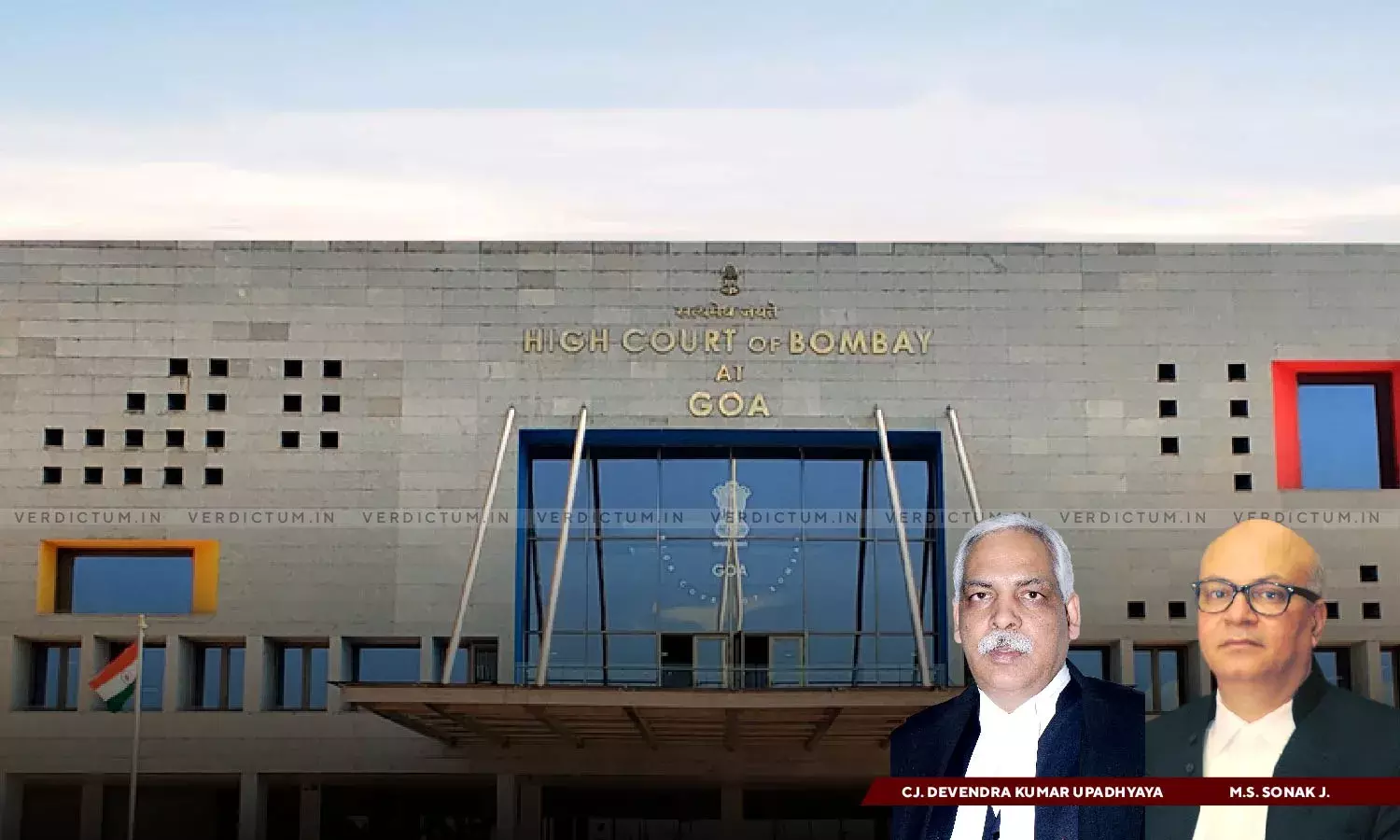Bombay HC Directs Students Who Allegedly Committed Theft In College To Undertake Community Service At Old Age Home For 2 Months; Sets Aside Their Debarment

The Bombay High Court, Goa set aside the debarment of students who allegedly committed theft in their college and directed them to undertake community service at an Old Age Home for two months.
The said students had filed writ petitions before the court challenging the orders cancelling their registration for Semester I (2023-24) and imposition of fines of Rs. 50,000/- each, amongst certain other punishments imposed upon them.
A Division Bench comprising Chief Justice Devendra Kumar Upadhyaya and Justice M.S. Sonak ordered, “Although there is not much material as such to distinguish between the role played by the petitioners and the remaining three students, still, accepting the Institute’s case that there was some difference, this is a fit case where the petitioners, in addition to payment of a fine of ₹50,000/-, must undertake community service for a period of two months and for two hours each day. … We were informed by the Advocate General that there is an old age home at Majorda, Goa, not too far from the University campus. Mr Faldessai also confirmed this position. Accordingly, the petitioners are directed to undertake community service at this old age home as suggested by the learned Advocate General for a period of two months commencing from 01.02.2024.”
Advocates Parag Rao and Ajay Menon appeared for the petitioners while Advocates Pravin Faldessai and P. Tari appeared for the respondents.
In this case, the students were of Birla Institute of Technology and Science, Pilani, K.K. Birla Goa Campus at Zuarinagar, Sancoale, Goa (Institute) and the penalties were imposed upon them for their alleged involvement in the theft of potato chips, chocolates, sanitisers, pens, notepads, mobile phone stands, two desk lamps, and three Bluetooth speakers from the stalls on the college campus. Initially, the petitioner students and three other students were debarred from registration during Semester I and two further semesters but the petitioner students were debarred for the present semester plus three other semesters.
However, in respect of three other students, the appellate authority, by orders, dropped the penalty of cancellation of semesters but maintained the fine of Rs. 50,000/-. In respect of the petitioner, however, the appellate authority maintained the cancellation of Semester I and the said fine. Since, the examinations for the first semester were scheduled on December 6, 2023, the students instituted the petitions and applied for urgent circulation. An interim order was passed on both petitions permitting the students to answer the Semester I examination and the answer papers were directed to be kept in a sealed cover.
The High Court in the above context noted that the five students, including the petitioners, admitted having picked up some eatables like chips and chocolates and other items like mobile phone stands and speakers from the stalls but claimed that they were under the impression that these items were left abandoned at the stalls. It further noted that all the students, not only returned the items immediately but expressed their apologies in writing.
“Applying the law in Janet Jeyapaul (supra) to the facts of the present case, where there is no dispute whatsoever that the respondent Institute is a deemed University under Section 3 of the UGC Act and is engaged in discharging public functions of imparting education, Mr Faldessai's objection will have to be overruled. The further contention that cancellation of a semester bears no public law element also cannot be upheld. If, admittedly, a deemed University is amenable to writ jurisdiction in matters of admission of students, rustication or imposition of penalties that affect such admission or rather continuance of such students in the Institute cannot be held to be immune from challenge under judicial review on the ground that they are purely private functions having no public law element whatsoever. Incidentally, Janet Jeyapaul (supra) was a case of termination of the services of a lecturer, and here we are concerned with penalties imposed upon students who are the raison d'tre for establishing such Universities and imparting education to them”, it said.
The Court observed that where the Institute acts contrary to its own guidelines, ignores UGC directives (particularly on the aspect of reformation), discriminates between two sets of students even though there was no appreciable difference between circumstances of the two sets and the Institute breaches the principles of natural justice and fair play, it cannot claim any immunity based on the principle that Courts should be slow in interfering with its internal affairs concerning disciplinary proceedings against students.
“The circumstance that students would approach the Courts against the Director's decision cannot be a legitimate consideration for not tempering justice with mercy. Every student has the right to seek redressal from the Court of law, and the fact that students might take recourse to Courts of law cannot be a valid consideration not to revisit the penalty imposed by adhering to the UGC guidelines, which emphasise the reformative element”, it held.
It added that the courts normally do not interfere with the quantum of punishment imposed and leave it to the disciplinary Authorities to decide upon the same, however, when it is found that there is discrimination in a matter of imposition of penalties or, where the penalties imposed are in breach of the guidelines enacted by the Institute itself or where the penalty imposed excludes considerations of reformation, the Institute cannot claim any immunity from judicial review. It also said that the institute has to explain the deviation from its own guidelines and cannot simply rely upon some unfettered discretion claimed by its director in such matters.
Accordingly, the High Court set aside the debarment order and directed the petitioners to do community service.
Cause Title- XYZ v. Birla Institute of Technology & Science, Pilani K.K. Birla Goa Campus & Anr.


